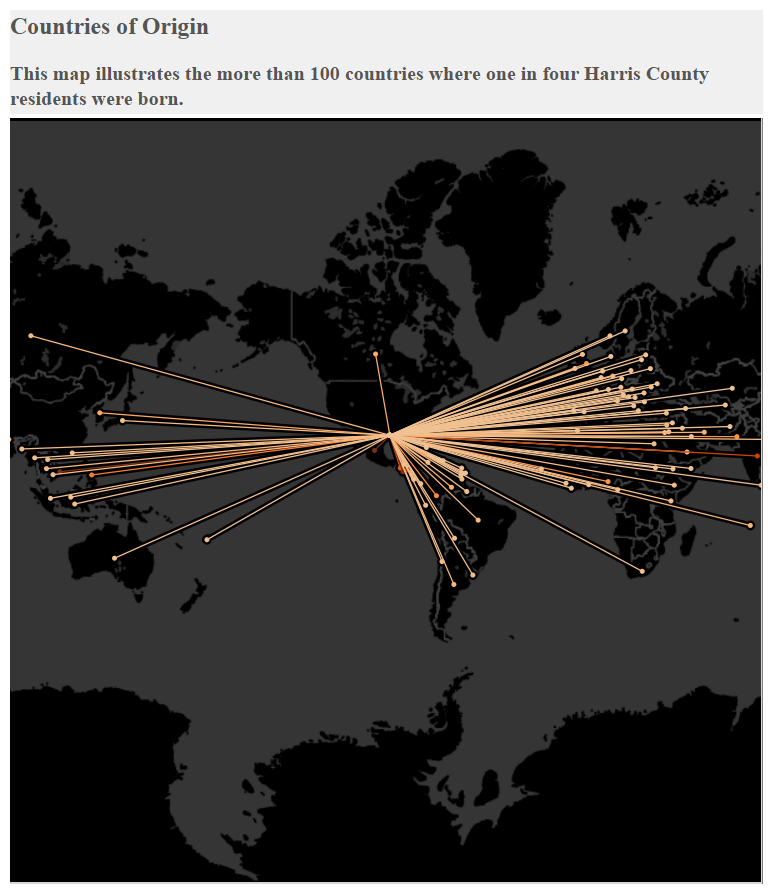Remember when the Obama regime traded out the top Taliban commanders from Gitmo to Qatar for Bowe Bergdahl? Remember when the Obama regime was working to normalize relations with the Taliban by funding an embassy for them in Qatar?
In 2017, Defense Secretary Jim Mattis placed the blame for the current mess in Afghanistan squarely on the Obama administration, telling Congress Wednesday that by cutting support for the Afghan forces prematurely, President Obama allowed the Taliban to regroup and recover.
“I believe that we pulled out forces at a time, as you know, when the violence was lower, but we pulled them out on a timeline rather than consistent with the maturation of the government and the security forces,” Mattis told a Senate subcommittee Wednesday.
“The result was that as security declined, all the other stresses have come to bear, to include heavy casualties on the part of the Afghan forces, other nations pulled their forces out as well, and the Taliban was emboldened.”
Or remember when Eric Holder traveled to Qatar in 2009 to deliver a speech on financial corruption? Did he know that the Qatari Fund was buying American teachers and spreading hate against Israel and promoting Islam in the American education system? uh huh….
The emirate’s educational foundation spreads anti-Israel and anti-American propaganda in U.S. schools.
NR: On January 27, Qatar Foundation International (QFI) sponsored a continuing-education event titled “Middle East 101” for public-school teachers in Phoenix, Ariz. It was hosted by the Arizona Department of Education — which is not surprising, given that QFI has donated over $450,000 to Arizona public schools (and over $30 million to public schools across the country). Unfortunately, while there was a good deal of interesting material, teachers also got a large helping of Islamist propaganda, designed to influence American schoolchildren and ultimately to advance Qatari foreign policy.
QFI program officer Craig Cangemi introduced QFI as an American member organization of the Qatar Foundation (QF), which he blandly described as “a private, education-focused foundation in Doha, Qatar.” In fact, QF is a massive apparatus directly managed by Qatar’s ruling Al-Thani family, which conducts a tremendous range of state-development activities ranging from technology research to higher education. This includes “Education City,” a district in Doha that hosts Qatari branches of American universities, including Texas A&M, Northwestern, Georgetown, and others, which QF funds to the tune of more than $400 million annually. Georgetown alone received nearly $300 million in grants from QF between 2011 and 2016.
However, while the American universities are able to preserve some freedom of thought, other QF-backed schools in Doha enforce a rigid ideological program. QF schools and mosques often host the most virulently radical Islamist preachers, including one who referred to the 9/11 attacks as a “comedy film,” another who said that Jews bake Passover matzoh with human blood (“believing that this brings them close to their false god”), and a third who accused the Shia of “poisoning” and “sorcery.”
A featured lecturer of the QF-backed Qatar Faculty of Islamic Studies was Mohamed El-Moctar El-Shinqiti, currently a professor at the QF’s flagship Hamad bin Khalifa University. El-Shinqiti was once an imam at a West Texas mosque, where he openly encouraged young people to engage in terror attacks against Israel and Egypt. The dean of the QF’s College of Islamic Studies (CIS) is Emad al-Din Shahin, a member of the Egyptian Muslim Brotherhood whose prominence led Egypt’s military regime to sentence him to death in absentia. Other CIS faculty are connected to the International Institute for Islamic Thought (IIIT), the Muslim Brotherhood’s American think tank that is the nexus of a terror-finance network named the SAAR Network. These CIS faculty include Louay Safi, former IIIT executive director and research director, and Jasser Auda, also an IIIT lecturer. Other faculty seem closely aligned with the IIIT’s long-term goal of the “Islamization of knowledge,” including one professor working under Auda who has written about “Revelation as a source of engineering sciences.”
An American educator who worked at a QF educational institution in Doha told the Middle East Forum that faculty were not allowed to purchase maps showing the state of Israel, the entire territory of which was instead labeled “Palestine.” Even tangentially mentioning the existence of Israel or the Holocaust in class would provoke severe reprisals from the Qatari Ministry of Education. The official government policy was “Israel doesn’t exist.”
QF is a committed supporter of Islamist extremism, particularly at its Al-Qaradawi Center for Islamic Moderation and Renewal — named in honor of Sheikh Yousef Al-Qaradawi, spiritual leader of the Muslim Brotherhood, who chaired the committee that established the Center’s faculty. (Al-Qaradawi has repeatedly endorsed suicide bombings, terrorist attacks against the United States, and the total extermination of the Jews. He is barred from entering the U.S. because of terrorism concerns.) And in 2012, QF hosted Hamas leader Ismail Haniyeh (who was just designated as a terrorist by the federal government) and gave him a “victory shield” featuring the Dome of the Rock.
Meanwhile, during the “Middle East 101” event, Cangemi insisted that QFI (the American branch of QF) sets its own policies, saying, “We are an autonomous organization. . . . We do not have any ties with Qatar: the government, the state, or really [the] Qatar Foundation.” This is patently false. The CEO and nominal founder of QFI is Sheikha Hind bint Hamad Al-Thani, the daughter of Qatar’s former emir. The chairman of the board of QFI is Sheikh Jassim bin Abdulaziz Al-Thani, another member of the royal family. As of 2012 (the most recent year for which public records are available), the treasurer of QFI was Khalid Al Kuwari, a senior Qatari government official and a scion of the powerful Al-Kuwari clan. QFI is in fact a key instrument of Qatari state policy.
Evidence of this is found in the teaching materials that Cangemi recommended to his schoolteacher audience. Al Masdar, for instance, is QFI’s flagship curriculum project. It offers lesson plans and resources about countries all over the Middle East. Unsurprisingly, the most flattering collection is about Qatar. One resource offered is even titled: “Express Your Loyalty to Qatar.” No lesson plan appears particularly critical of Qatar, whereas other countries discussed in Al Masdar’s resources are subject to much more varied discussion.
Other lesson plans contain anti-Semitic and anti-American material, particularly several lessons produced by the Zinn Education Project, which claims to promote a revisionist “people’s history.” These include “Greed as a Weapon: Teaching the Other Iraq War,” which examines the “greed” of the corporations ostensibly responsible for the Iraq war in order to “feast on Iraq’s economy,” and “Whose ‘Terrorism’?”, which questions the definition of terrorism, creating scenarios for students to discuss — for example, if “Israeli soldiers taunting and shooting children in Palestinian refugee camps, with the assistance of U.S. military aid” should be considered an example of terrorism.
The main speaker at the “Middle East 101” event was Barbara Petzen, a senior staff member at the Center for Strategic and International Studies who once worked for the Saudi-funded Middle East Policy Council (MEPC). Petzen has been longaccused of anti-Israel bias in educational fora. During her presentation, she repeatedly argued that religion or ideology had no relationship with Islamic terrorism, which she claimed was more immediately rooted in Muslim political grievances against the West for its support of Israel and the wars in Iraq and Afghanistan. (Petzen hit similar themes in a 2015 presentation for QFI.)
Petzen particularly whitewashed the role of Islamism, a religious-political ideology with roots in 20th-century totalitarianism that demands political supremacy as a religious value, and thus leads inevitably to political violence. She argued that Islamism, as represented by Saudi Arabia and the Egyptian Muslim Brotherhood, is focused on governing society (albeit in a religiously severe fashion), and is therefore opposed to extremism, since “extremism, by definition, turns things over — is destabilizing. . . . If you’re in power, you don’t want extremism because it destabilizes your control.” (By this faulty definition, no ruling ideology can be “extremist.” Indeed, ISIS would not be considered “extremist” once it set up its government.)
Similarly, when commenting on the June 2017 decision by Saudi Arabia, Egypt, and seven other Muslim countries to sever ties with Qatar, Petzen downplayed the importance of the Qatari regime’s deep, systematic support for Islamism and terrorism. Instead, she claimed the diplomatic crisis was motivated mainly by Qatar’s close economic relations with Iran, a geostrategic competitor of Saudi Arabia. This ignores the fact that Qatar’s neighbors fear destabilization by the Muslim Brotherhood and its supporters and have abruptly reversed their own prior support of the Brotherhood in response.
Petzen’s claim echoes the line taken by QFI itself. In July 2017, QFI and Al Jazeera jointly produced a propaganda video condemning the so-called blockade of Qatar. In November, QFI organized a panel discussion claiming that the Gulf states’ isolation of Qatar was due to “fake news,” a claim that QFI’s executive director, Maggie Salem, explicitly endorsed on Twitter. For QFI to belittle the very real alarm that other Muslim states feel about Qatar’s support for extremism is telling, and it calls into question QFI’s claims of independence from the Qatari state.
Qatar Foundation International presents itself as a beneficent charity, merely working to spread knowledge of different cultures. In fact, it is an agent of Qatari foreign policy, with the aim of influencing American schoolchildren to support the Qatari agenda. No matter how attractive Qatari money may be, American educators must reject QFI.






